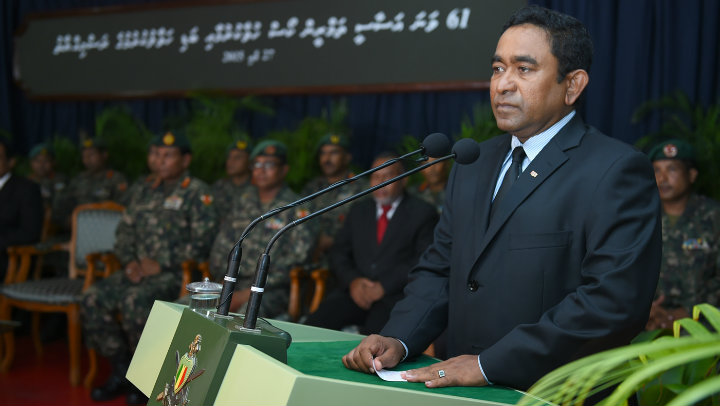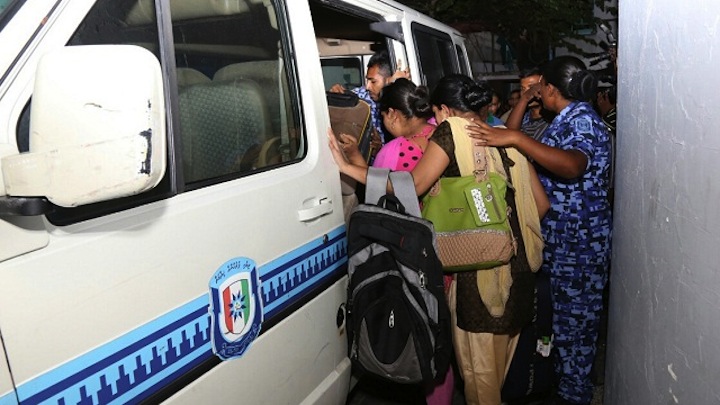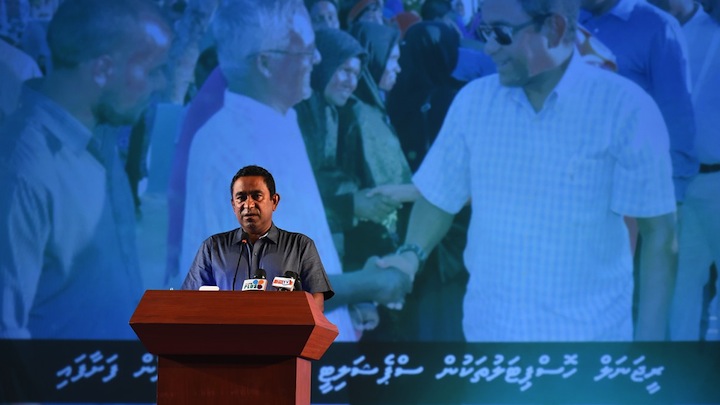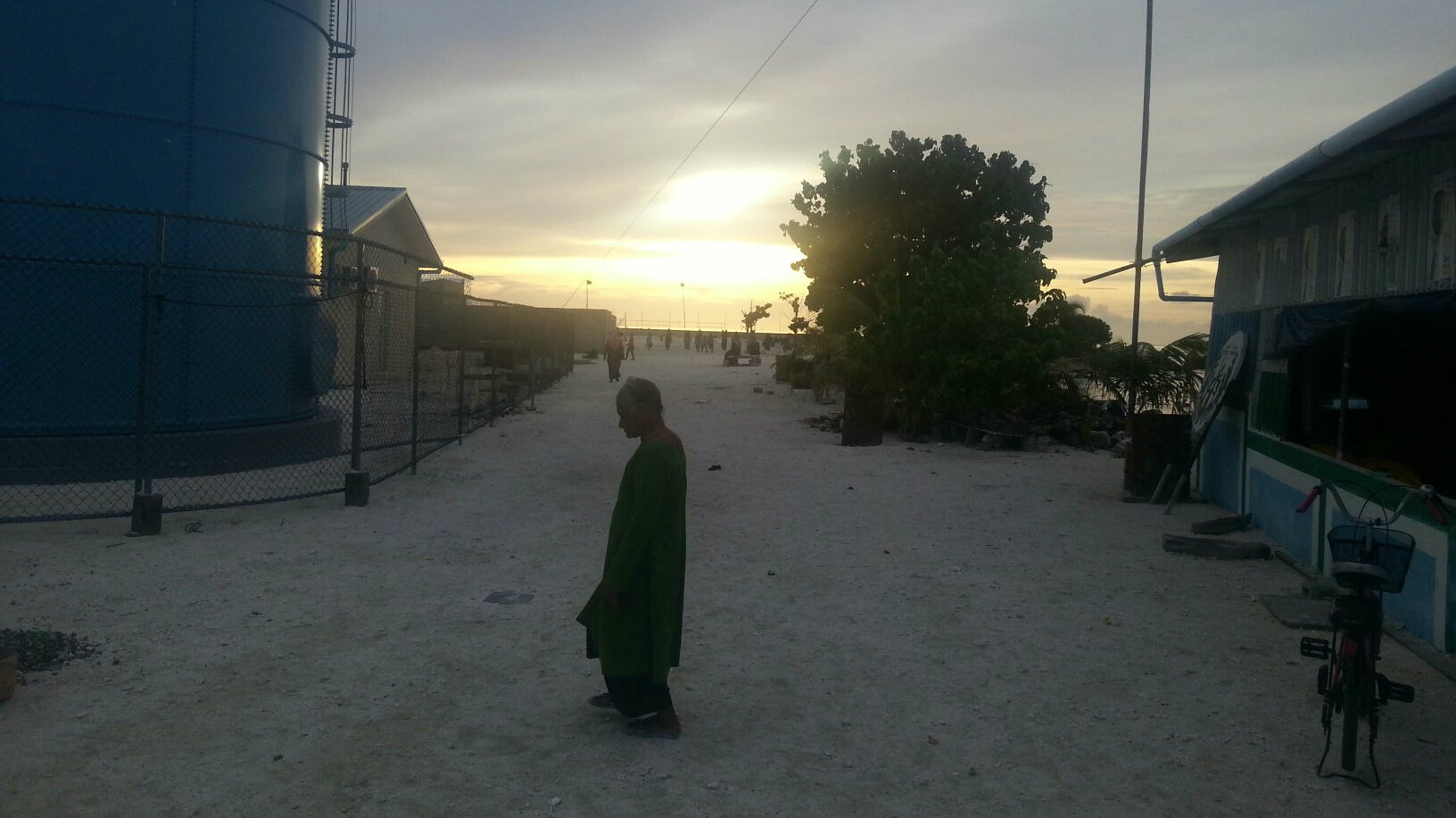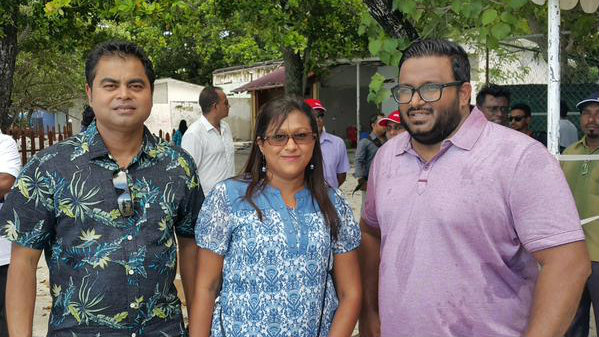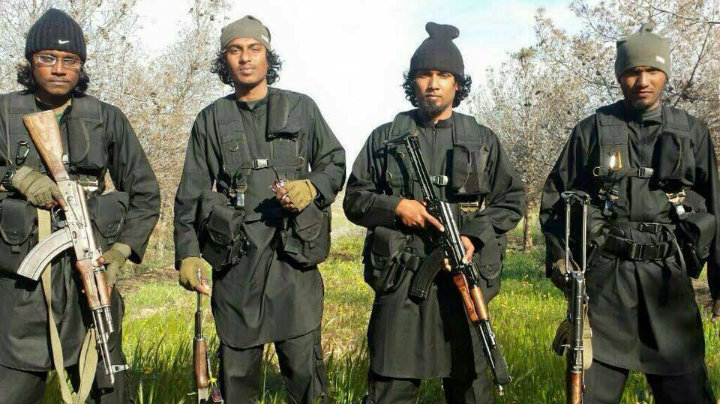President Abdulla Yameen has pledged today to begin talks with the opposition Jumhooree Party (JP) whose senior officials appear to be in self-imposed exile.
JP leader and tourism tycoon Gasim Ibrahim has been in Bangkok since late April, ostensibly to repair a boat. Local media report the criminal court has issued an arrest warrant for Gasim on a charge of financing a historic anti-government protest on May 1.
The JP’s deputy leader Ameen Ibrahim and council member Sobah Rasheed are accused of inciting violence at the May Day protest, and have been charged with terrorism. If convicted, they face between 10 and 15 years in jail.
Both Ameen and Sobah are out of the country. In a video message, Sobah said he is seeking political asylum.
Speaking to the press today, President Yameen said: “God willing we will sit down with Jumhooree Party for talks. We’ve been waiting for Ameen Ibrahim to return to the Maldives and join the talks, but we will go forward even without him.”
Talks will begin within the next two days, he said.
The JP was not responding to calls at the time of going to press.
The president called for separate talks with the JP, the main opposition Maldivian Democratic Party (MDP) and the religious conservative Adhaalath Party.
The overture came after months of continuous protests over the jailing of ex-president Mohamed Nasheed on terrorism charges and a US$90.4 million claim on Gasim’s Villa Group
The JP immediately agreed to sit down with the government without conditions. In addition to Ameen, the party has proposed MPs Ilham Ahmed, Abdulla Riyaz, and Hussain Mohamed to represent it at the talks.
President Yameen has ruled out negotiations over Nasheed’s release. His agenda focuses on political reconciliation, strengthening the judiciary and political party participation in socio-economic development.
The MDP has proposed Nasheed, chairperson Ali Waheed and MP Ibrahim Mohamed Solih as representatives. The Adhaalath Party proposed its president Sheikh Imran Abdulla, who is currently in police custody. He is also charged with terrorism over the May Day protest.
The government has rejected Nasheed and Imran as representatives.
“Adhaalath Party and MDP have not shown me a way of proceeding with this. They have stated they will not talk with the government without certain people. I don’t believe that a party which considers the interest of the whole party or the interest of the public would put forward a person in detention or serving a sentence to discussions with the government,” the president said today.
The government “is obliged to continue applying the law indiscriminately to all,” Yameen said and added: “It will be hard for the people to accept it if we take different actions against different people in different situations.”
The president said he will listen to what the opposition has to say and meet their demands if “it does not compromise the law.”
The government had previously rejected the opposition’s calls for talks because their terms were unacceptable, he continued.
“The political parties had asked me to negotiate with them before. But I rejected them because I could not accept the terms they set. But in my own time, within my reasons, I am looking forward to talk with the parties. It is for the benefit of the people, to establish a peaceful environment for all.”
The government had decided to call for talks in the interest of the public and because the international community “believes there are many issues that needs discussions and need to be solved,” he said.
“Now is the time to build the country. We have lost five years. That’s the truth. This is the chance to start projects to develop all areas of the country. This is the time to provide the youth with employment. My appeal to the people of Maldives is to grab this chance,” he said.
“I want the support of everybody. If I did something wrong I will come before the media and apologise to the people and will try to go forward again.”
President Yameen said corruption and injustice in the Maldives resulted from the discriminate enforcement of the law.
“Critics of my government claim there is corruption within the government. It is not a problem at all. I will not make an exception to anyone in my government. If anyone is involved [in corruption] or if anyone is convicted of a crime, he has to face the law,” he said.
